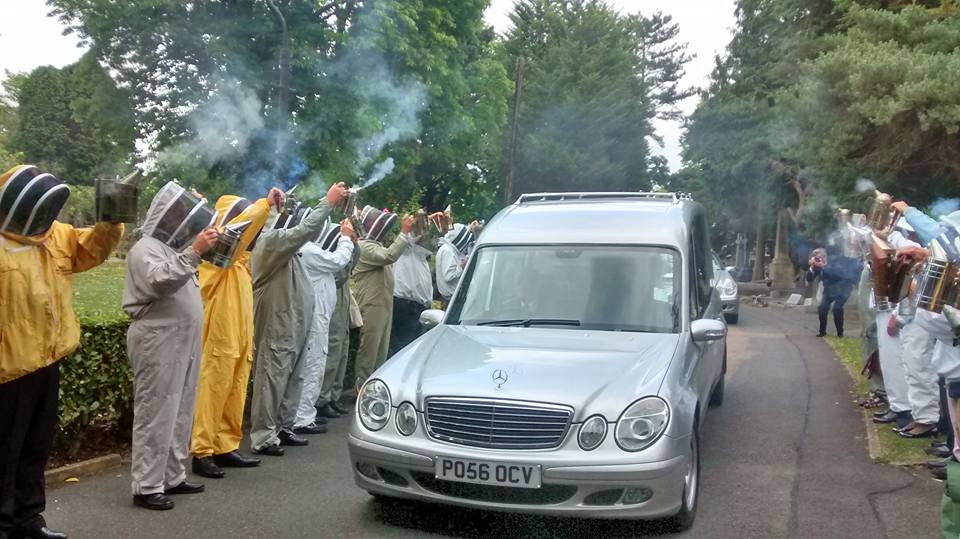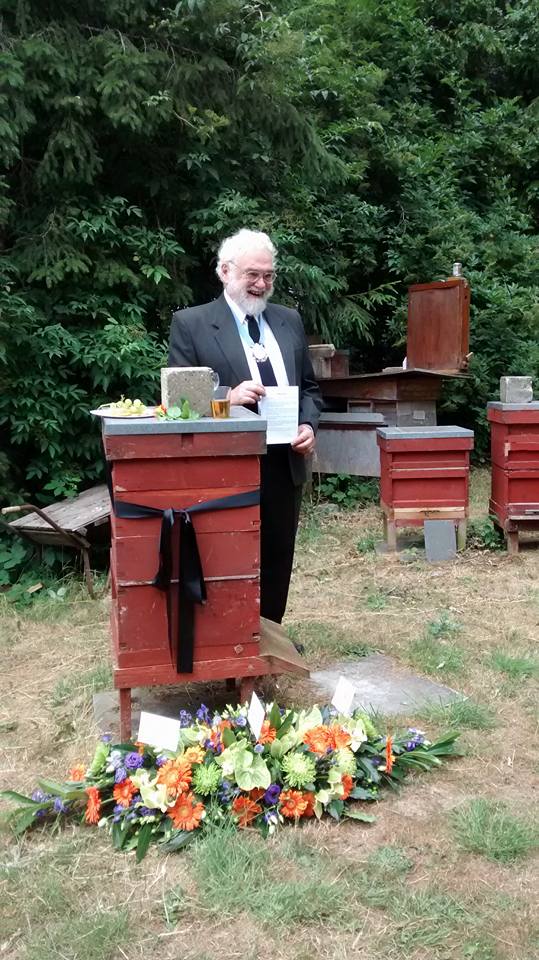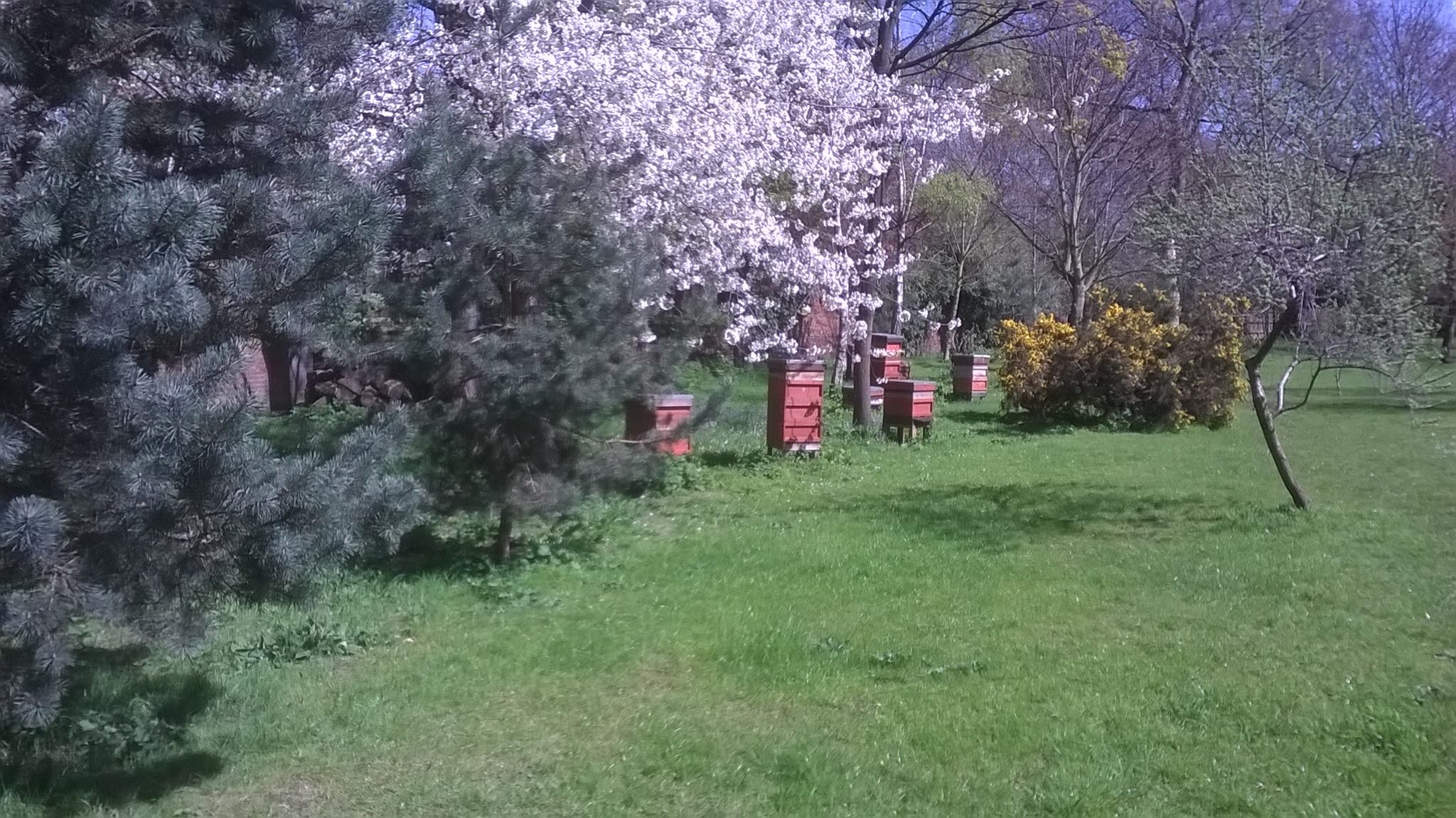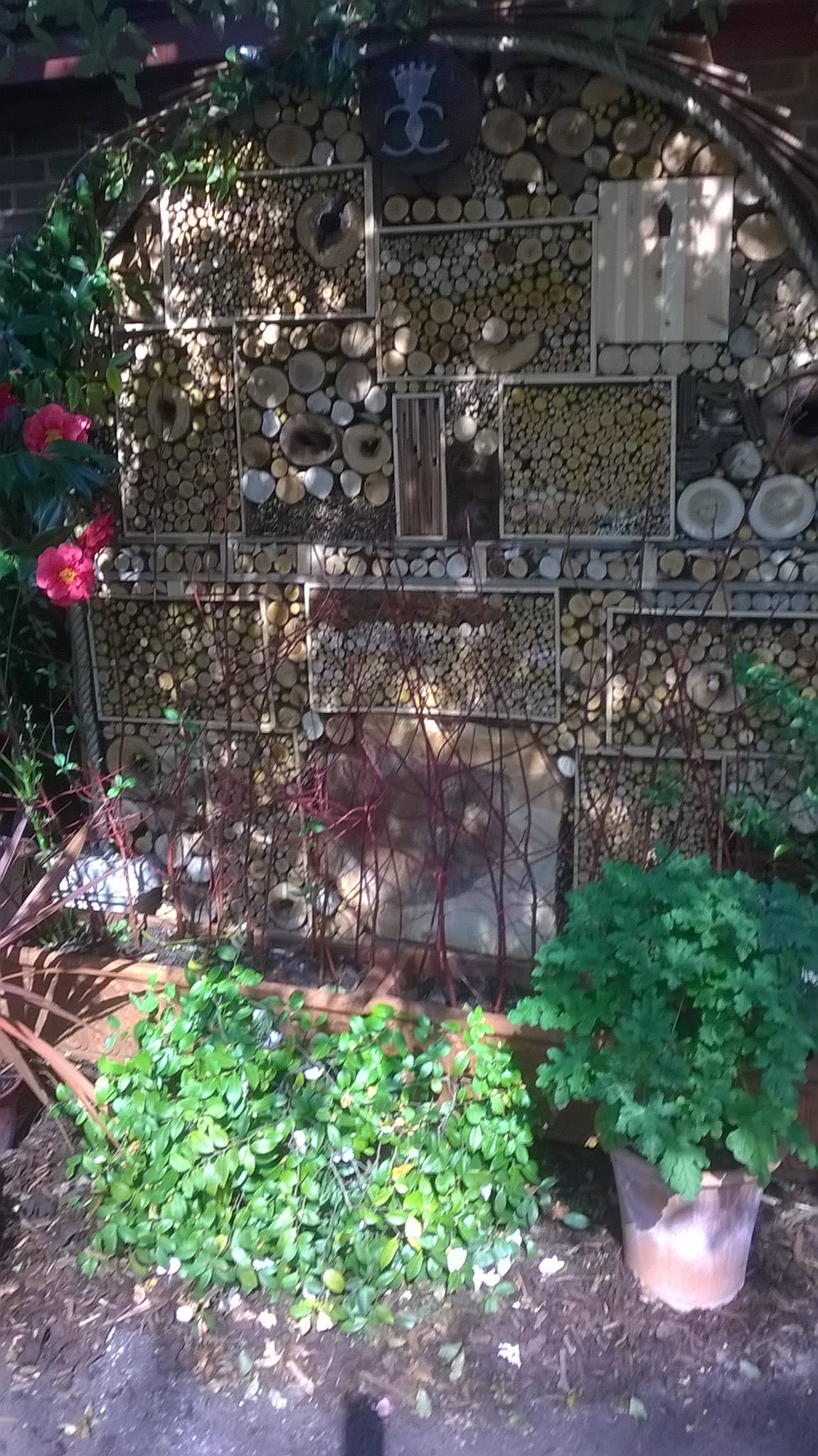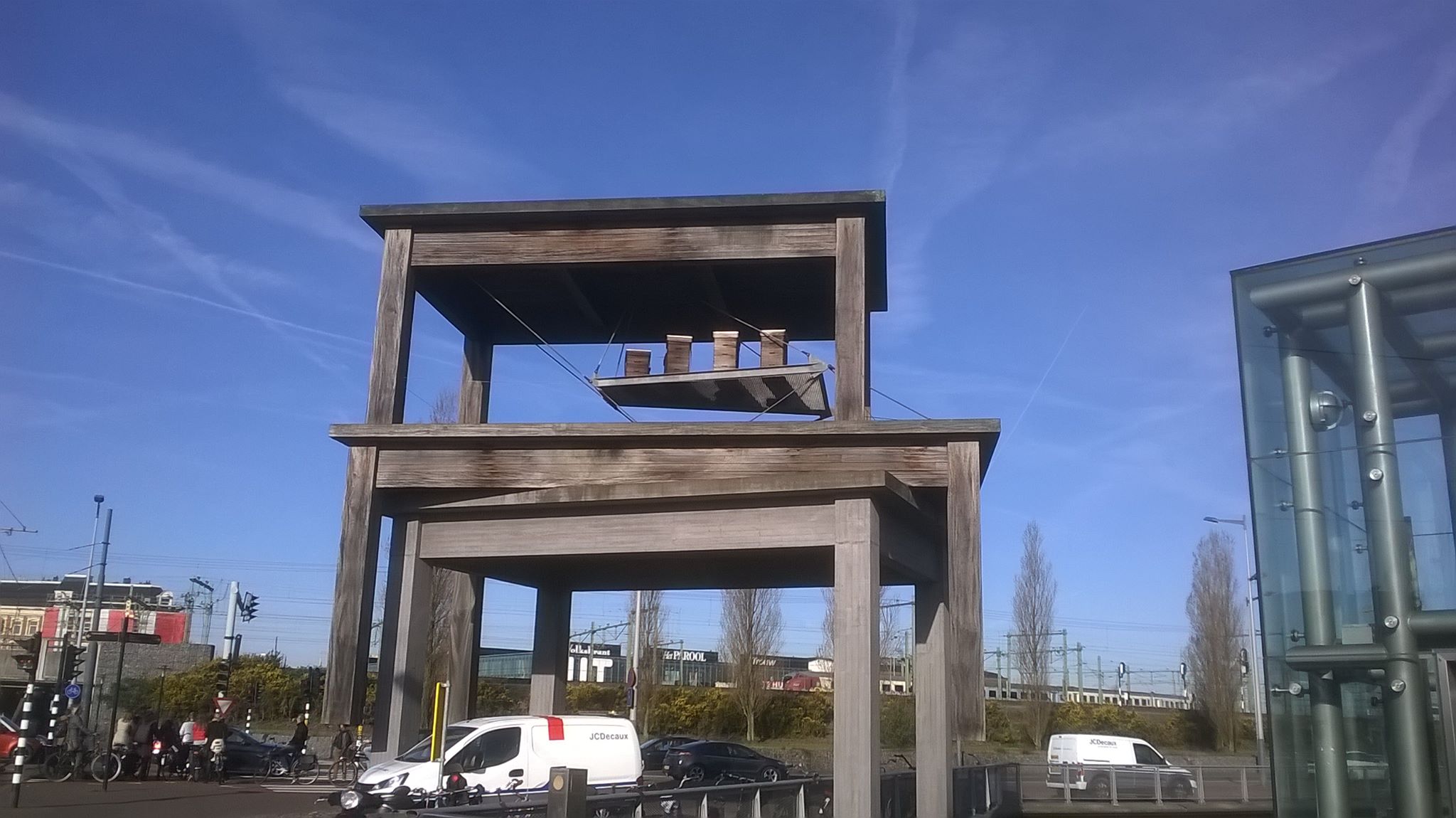Ealing beekeeper Thomas Bickerdike tells us about a remarkable queen who took everything in her stride.
Uncategorized
A fond farewell to a champion beekeeper
“Clive was the Chairman of the Kent Bee-Keepers’ Association and Chief Show Steward of the National Honey Show.Clive was a great champion of the beekeeping community and among other things was our swarm coordinator for many years.
His involvement along with former chair John Chapple ensured the LBKA’s survival during difficult times in the 90’s. He will be deeply missed by all who knew him. The LBKA’s thoughts are extended to Clive’s family.”
From the London Beekeepers’ Facebook Page. Sent to Ealing Beekeepers via John Chapple and Emily Scott.
Bees about with John Chapple
A treat from John Chapple this May Bank Holiday brings picturesque scenes of hives at his apiary, elaborate bug hotels and inventive hive sites in Holland. Ealing beekeepers – enjoy!
Thanks to the technical skills of Ealing beekeeper Llyr Jones in delivering this gallery at the apiary table for the website’s news blog.
The insect that loves having sex
Which is the most promiscuous female insect of all? BBC Earth reveals in ‘The insect that loves having sex‘ that the female honeybee queen mates with the most males, neatly knocking the female cobalt milkweed beetle off the throne:
“The European honey bee was found to mate up to 20 times and the Asiatic honey bee up to 30 times. However Cabrera-Mireles determined that the Apis dorsata, the giant honey bee of South and Southeast Asia, was the most polyandrous of all, with one DNA fingerprinting studying determining that females had up to 53 mates.
The female cobalt milkweed beetle has been recorded mating up to 60 times, but was disqualified by Cabrera-Mireles because this figure included multiple matings with the same male.”
For incredible footage on the honeybee queen watch this clip from More than honey.
Read more on BBC Earth ‘The insect that loves having sex‘. Story sent by Andy Pedley.
Hungry honeybees are impulsive eaters
A new study has found that starving honeybees lose self control and act impulsively. The findings, published in the Royal Society journal Biology Letters, revealed that hungrier bees chose small immediate rewards rather than wait for larger rewards: http://ow.ly/I8rvX. Story sourced by Emma Sarah Tennant.
What can we learn from insect societies?
A great topic talked about at this week’s Commonwealth Science Conference: ‘How can we use insect societies as a mirror to reflect on our own?’. The talk by Professor Raghavendra Gadakar, President of the Indian National Science Academy, asked what we can learn from insect societies and started by looking at bees. Read more notes on the talk at the Commonwealth Science Conference blog. Story sourced by Emma Sarah Tennant.
All about the bees, ’bout the bees
Ealing beekeeper Sara gets her bees tucked up for winter, read more on her blog this week.
Winter studies: A chat about the small hive beetle
Want to know more about the small hive beetle (SHB) and it’s possible impact on British beekeepers? Catch up on the latest BeeCraft Live series with a short summary around the chat here.
National Pollinator Strategy
Have you caught up on the National Pollinator Strategy? Read about the government’s plans on BBC News: Plan bee: New measures to protect pollinators. Story sourced by Emma Sarah Tennant.
National Honey Show
Miss this year’s National Honey Show? Catch up on the atmosphere and events with an excellent write-up by Ealing member Thomas Bickerdike.

